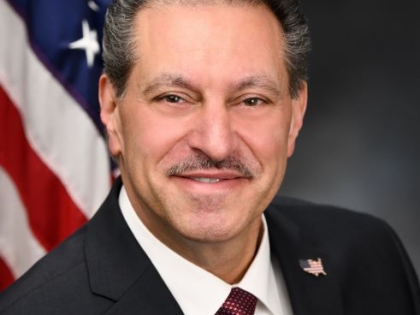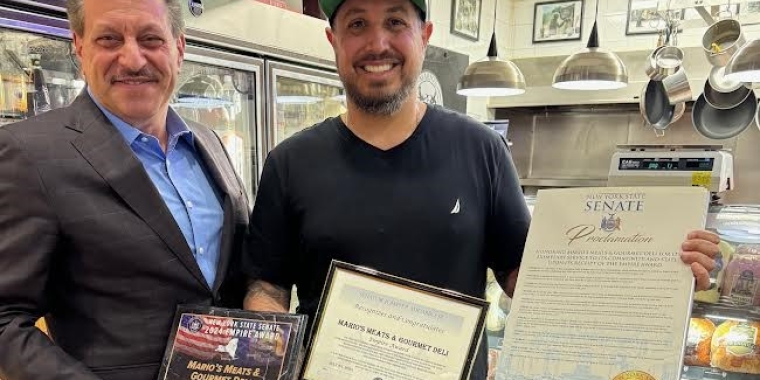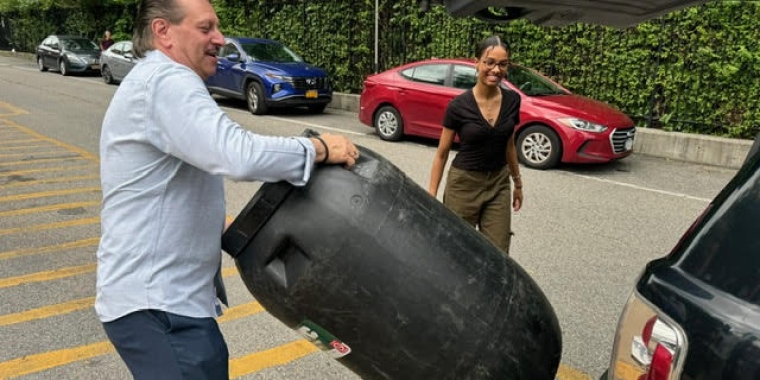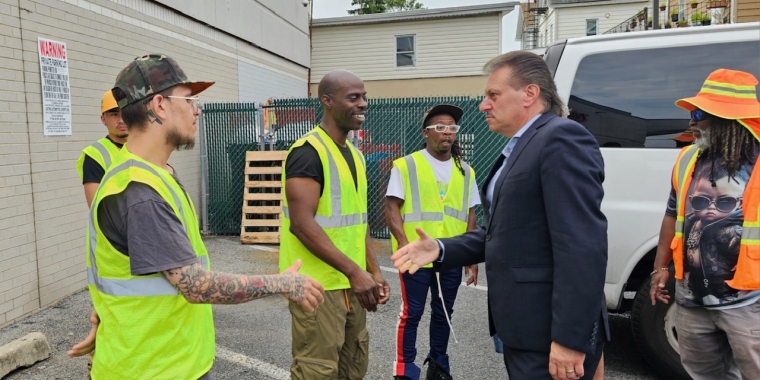
Addabbo hears from state education officials and advocates at budget hearing
Senator Joseph P. Addabbo, Jr.
February 6, 2018

In an effort to learn how the Governor’s proposed 2018-19 Executive Budget could affect local school children, teachers, parents and the state’s entire educational system, NYS Senator Joseph P. Addabbo, Jr. participated in a State Capitol public hearing to examine the impact of the spending plan on a wide variety of educational programs and services.
“At this hearing, which ran for almost 10 straight hours, we heard from State Education Commissioner MaryEllen Elia, NYC Schools Chancellor Carmen Farina, teachers’ organizations, and many other groups and individuals devoted to providing our school children with the best possible education,” said Addabbo, who was appointed the ranking member of the Senate Education Committee. “With the many economic uncertainties associated with federal tax reform, health care cuts and other actions expected to negatively impact our state’s fiscal condition, this will be a tough budget year in Albany as we face down a $4.4 billion deficit. But as always, providing opportunities for all of our school children to succeed in both the classroom and in their future adult lives is a top priority.”
Addabbo noted the Governor is now proposing a 3% increase in statewide public school funding, specifically $769 million, for 2018-19, including $338 million in necessary Foundation Aid. “Many education advocates, including the State Board of Regents, believe the increase should be at least $1.5 billion to continue existing programs and services and help to ensure that all of our children receive the sound, basic education promised them under the State Constitution,” the Senator said. “I agree we must find a way to manage our overall state budget deficit without sacrificing the progress we are making in our schools.” According to Chancellor Farina’s testimony, New York City schools would lose at least $144 million in school aid from a variety of state sources under the Executive Budget.
At the hearing, Addabbo asked questions on a variety of educational issues, including a new proposal in the Executive Budget – opposed by New York City Schools Chancellor Farina and NYS Commissioner Elia – which would require the city and other school districts to submit a funding allocation statement to the State Education Department (SED) and Division of the Budget (DOB) for approval each year. Approval from these two agencies would be required for the City to receive any new state aid increases.
“I am concerned about giving two state entities veto power over educational funding plans for its individual schools, especially since we don’t know what criteria would be used for approval or disapproval, or what would happen if SED and DOB disagree,” Addabbo said. “I obviously believe any educational entity should be transparent and accountable in its funding decisions, but I think this may be an over-reach into educational decisions that should be made solely on the local level by those who are the most familiar with the challenges facing our 1.1 million students attending our 1,800-plus schools.”
Addabbo also discussed the issue of Renewal Schools at the hearing, noting that two Renewal Schools in his district – P.S. 42 and M.S. 53 in Rockaway – are slated to close and that John Adams High School in Ozone Park has been upgraded to a “RISE” school based on its continuing improvements. Another topic discussed was the City’s continued use of trailers for classrooms, with Chancellor Farina noting that 159 out of 354 trailers have been removed since the 2014-15 school year, and that 75 more will be removed with help from the NYS Smart Schools Bond Act approved in 2014.
“We obviously have more challenges ahead in improving the performance of individual schools in New York City, ensuring our children are taught in safe environments, and increasing the number of classroom seats across the City,” Addabbo said, noting that some of his local schools are the most overcrowded in the City. “But it appears that progress is being made, and I hope we will be able to provide the resources our schools need to keep moving forward.”
Addabbo, who also serves as a member of the Senate Select Committee on Libraries, expressed concern at the public hearing regarding library funding proposed in the Executive Budget. “Right now, the spending plan proposes a $4 million cut in library aid over last year, which basically means our libraries would be funded at 2001 levels,” he said. “A recent Siena poll found that the use of public libraries is up 10 percent statewide, has increased 20 percent among households earning less than $50,000, and that libraries are the primary source of Internet access for these low- to middle-income New Yorkers. We are fortunate to have one of the best public library systems in all of New York State right here in Queens, and we need to provide them with as much support as possible.”
Other important issues that drew Addabbo’s attention at the hearing included: the need to provide adequate support for 4201, 4410, 853 and other special schools serving disabled and blind children; proposed changes in charter school funding and administration; efforts to improve school breakfast and lunch programs in schools, particularly for very low-income students; increased aid for private schools and yeshivas; along with additional funding to support anti-bullying programs in schools statewide.
Share this Article or Press Release
Newsroom
Go to Newsroom


